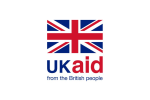Law
Tax
Research
Law
Tax
Research
Law
Tax
Research
Innovation Rediscovered
Lexlink Consulting is a dynamic legal and tax consulting firm. Built on a strong academic heritage, employ evidence-based methodologies, and pursue innovative homegrown solutions to problems facing the private and public sectors. We dabble in what traditional research institutes or consulting houses cannot, and deliver value to our clients. We pride ourselves not only in the depth of our team but in our ability to push boundaries in thought around issues we work on.

Our Clients











Twitter feed is not available at the moment.
